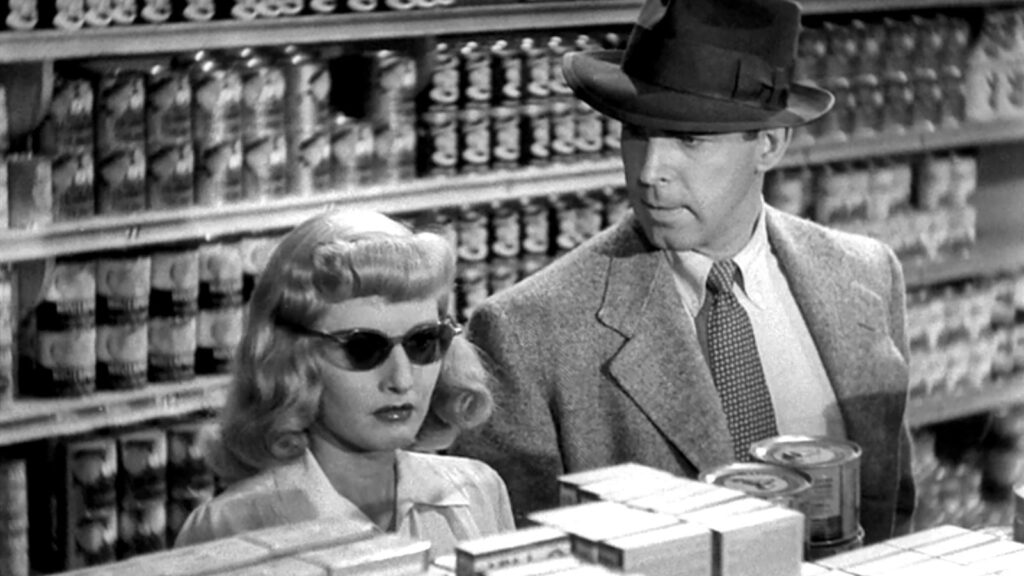Classic Film: Double Indemnity
Written by Ian Thomas Malone, Posted in Blog, Movie Reviews, Pop Culture
Society generally does a horrible job explaining the concept of crime to children. Separating the world into a false binary of good vs. evil barely even orbits the reality of injustice. A person hardly needs a rotten soul to find themselves wrapped up in a situation far beyond any lay person’s assessment of their moral fiber.
1944 launched the film noir genre with the iconic masterpiece Double Indemnity. Walter Neff (Fred MacMurray) is a fairly hapless insurance salesman, overconfident in his own ability to sway any scenario to his own liking. Neff is quite the easy mark for Phyllis Dietrichson (Barbara Stanwyck), a disgruntled housewife looking to murder her selfish husband. Neff puts up an obligatory meager resistance to the idea of committing a capital offense, before realizing that his knowledge of the insurance would prove invaluable to the success of the scheme.
Director/co-screenwriter Billy Wilder masterfully identifies the low-stakes pressure point in Neff’s character that defines his weakness as a person. Neff is not an evil man by nature. He is, however, very bored. Undervalued at work, Neff’s boss Barton Keyes (Edward G. Robinson) pressures him into taking a desk job viewed by Neff as a demotion beneath his skills as a salesman out in the fields.
Stanwyck plays her feminist icon with an understated sense of poise that demonstrates that while she’s firmly in command of Neff’s psyche, she hardly needed it to exert much pressure to achieve her goals. Phyllis promises the thrill of a lifetime, one that his desk job could never care to deliver. The murder isn’t the result of a battle between good and evil, but rather a natural response to a system that had no place for either Phyllis or Neff, both pawns in someone else’s game. Capitalism is the true villain of Double Indemnity.
Wilder understood an innate truth of crime thrillers. Some find satisfaction at the end of a whodunit when the killer is brought to justice, but that’s not the sum total of the appeal of the genre. Plenty seek a deeper understanding of why someone might turn away from the path of justice, to commit atrocities that make us feel uneasy to even think about.
MacMurray’s status as the “leading man” is almost an oxymoron. Stanwyck is the real driving force, but Wilder positions the two in a clever way that heightens Neff’s lingering emasculation at the hands of his boss. Neff can’t stand the uncomfortable claustrophobia of life square in the palm of capitalism’s mighty hand. The murder is not the work of an evil man, but the temper tantrum of a grown adult tired of living his life like a child, without a whiff of agency.
Noir delivers these uncomfortable truths, the layers of ugliness that often define the human experience. Crime thrillers teach us to rejoice when the bad guys are brought to justice. Noir isn’t interested in demonizing those who walk off the straight and narrow path, instead determined to present their full humanity, the kind of reality that can’t be boxed into the good vs. evil binary. Neff and Phyllis are criminals, but Wilder’s triumph lies in the way he successfully brought out the best in his characters.











